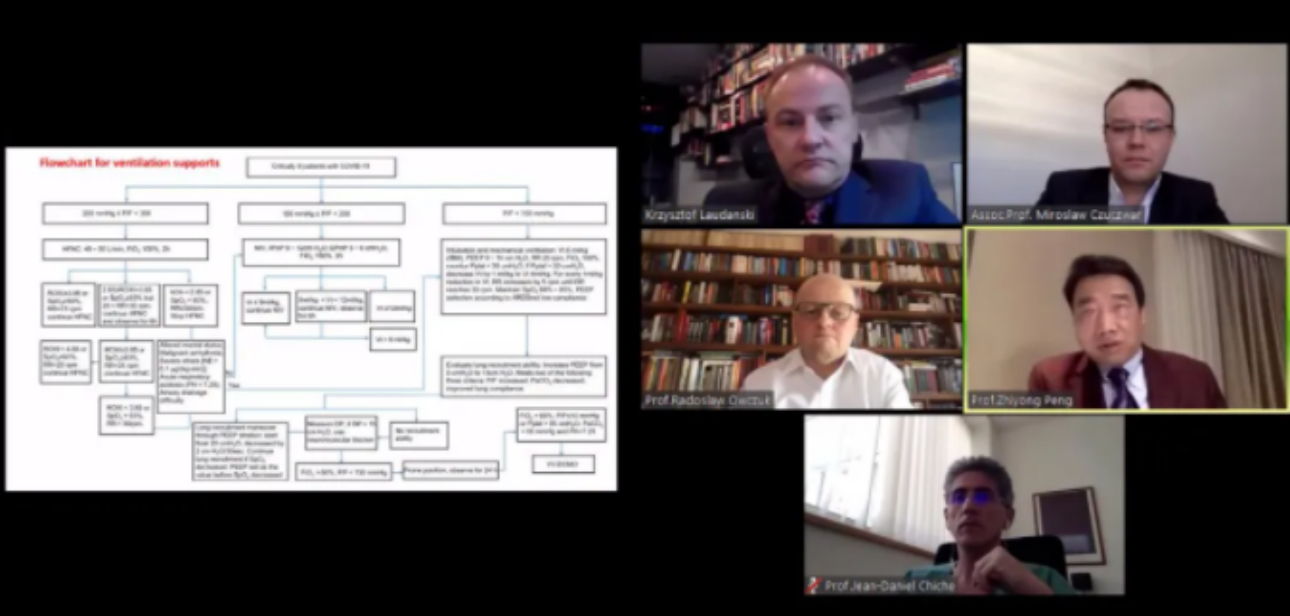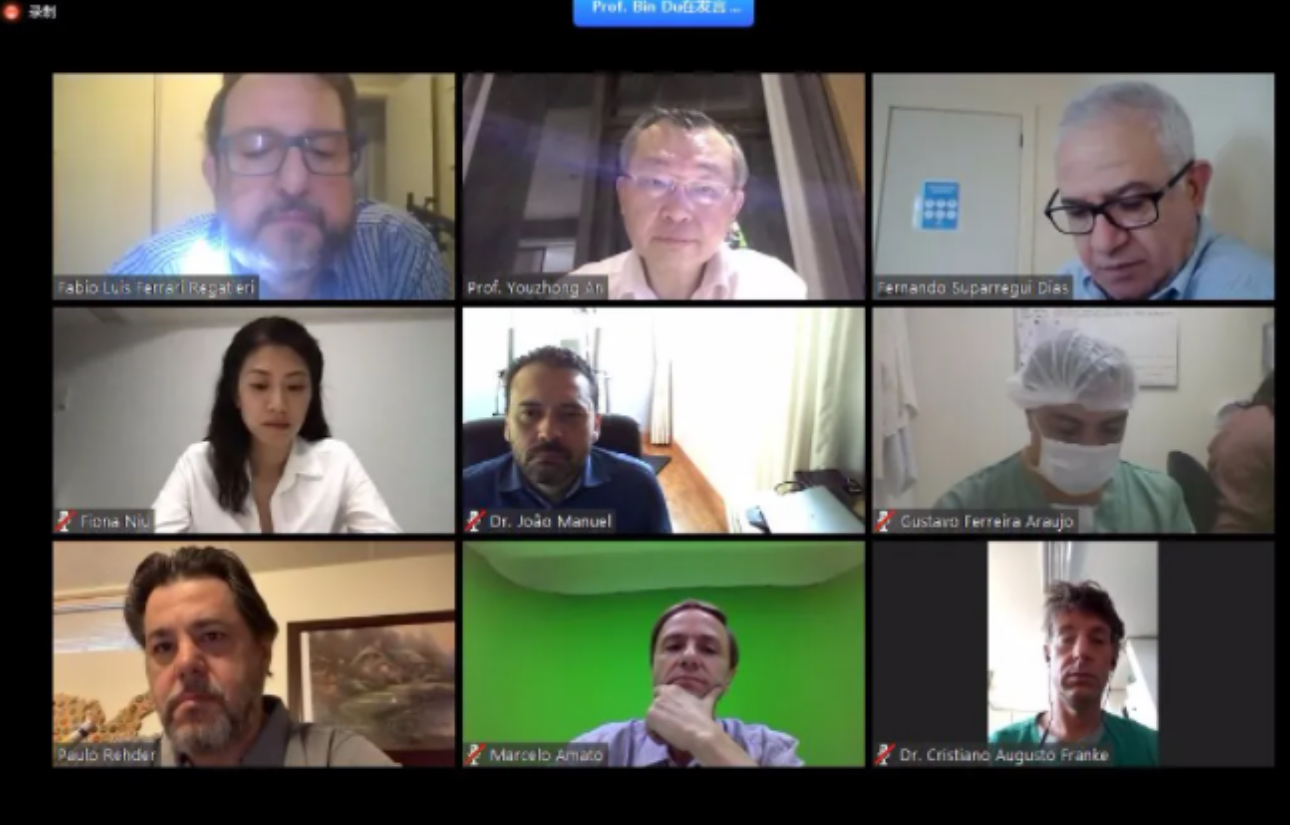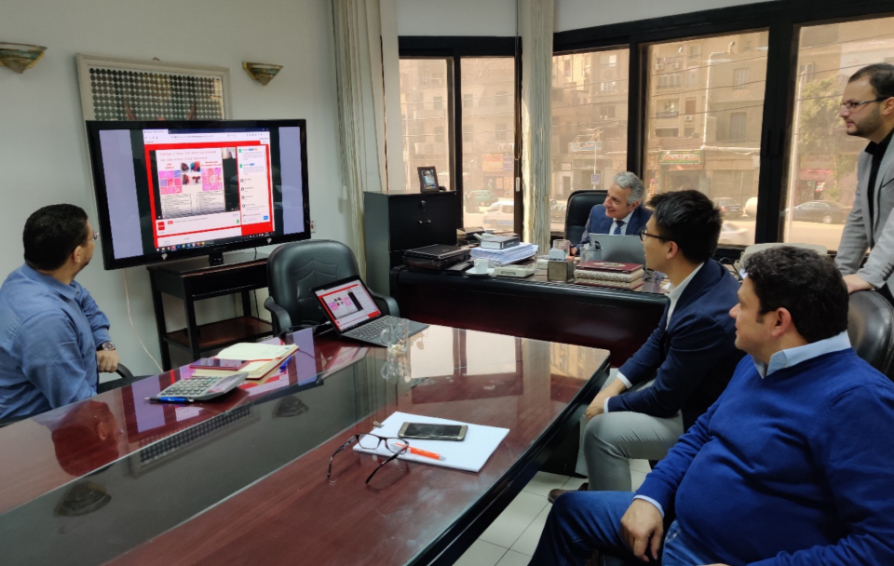"Heroes in harm's way" is how we refer to some of the heroes of the COVID-19 pandemic. Over the past three months, Chinese doctors have braved the danger and fought the pandemic to the best of their abilities.
Knowing that the countries along the "Belt and Road" needed help, without a second thought, they gave up their free time to share their practical experience of the most effective disease prevention and control methods and the best clinical treatments. Together, they worked with fellow doctors and medical practitioners to build a solid defensive wall against COVID-19.
China – Poland
Openness and cooperation are key in a partnership

"The pandemic in Poland is still in its early stages, but there is a clear trend to be seen in the growing number of cases. And one big worry is that some patients with severe ARDS need ECMO as soon as they reach hospital. We need China's experience in pandemic prevention, control, and treatment to prevent the situation deteriorating during this outbreak," said Polish Prof. Miroslaw Czuczwar (Medical University of Lublin).
On the evening of March 24, Mindray's anti-pandemic online conference was held for Poland. The "Voice of China" lingered, sending messages of hope and friendship. Prof. Zhiyong Peng from Zhongnan Hospital of Wuhan University, who had been fighting on the front line in response to the global pandemic, was once again there to share China's experiences. Based on the current pandemic status in Poland, he suggested necessary preventive and control measures that needed to be taken at this stage. He specifically discussed common issues such as the lack of ICU beds, the shortage of medical staff, and the protection of medical and nursing staff from infections inside and outside the hospital, providing a powerful "weapon" for combatting the pandemic in Polan.
During the conference, French Prof. Jean-Daniel ChiChe (Hopital Cochin) and American Prof. Krzysztof Laudanski (Hospital of University of Pennsylvania) both shared phased measures for mechanical ventilation and in-hospital medical staff/patient protection and isolation in their own countries, providing a variety of options for doctors of other countries listening online.
Openness and cooperation are key in a partnership. Countries actively learned from China's experiences and quickly formed a plan that fit their own anti-pandemic realities to win more time for patient treatments.
China – Africa
Sharing first-hand experiences openly is a real mark of friendship

"In China, the recovery rate and mortality rate of COVID-19 patients are 90% and 4%, respectively. However, the situation around the globe is still grim, with confirmed cases in every country and a worrying trend in some of the hardest-hit countries of a mortality rate well beyond 4%. We should be fully and promptly prepared in response to this global pandemic that affects everyone. With effective prevention and control measures and treatment plans at our disposal, we are able to build up our confidence in fighting the pandemic and ensuring the safety of patients," said Prof. Kang from West China Hospital, Sichuan University. He shared China's quarantine and treatment plan for COVID-19 with officials from African Ministries of Health, the directors of testing centers, and the directors of emergency departments during the Mindray China-Africa anti-pandemic conference on the evening of March 25.
During the 2-hour video conference, Prof. Kang openly shared his valuable experience in fighting the pandemic and effective treatment methods found by the whole West China team:Pre-hospital prevention and control strategies; coordination measures; in-hospital resource allocation; protection measures for medical and nursing staff; hierarchical treatment processes; "standardized" ICU treatment plans (putting forward the concept of "ICU without walls" which encourages multidisciplinary cooperation); diagnosis of critically ill patients with coronavirus; ECMO treatment indications; analgesic sedation and inotropic use; maintenance of organ function; and conditions for transferring critical patients out of ICU.
When the global fight against the pandemic was at a critical juncture, sharing first-hand experiences was a real mark of friendship toward the "Belt and Road" countries!
China – Brazil
It's such an act of friendship to share all experiences

"Regarding when to start mechanical ventilation, I think the first focus is hypoxia. But special attention needs to be paid to some asymptomatic patients to avoid missing the best time for intubation..." The voices of the doctors rang out in Brazil on the evening of March 26. The China–Brazil anti-pandemic online conference was officially connected, with Prof. Du from Peking Union Medical College Hospital and Prof. Youzhong An from Peking University People's Hospital on the one end, and some ten Brazilian experts, including Prof. Marcelo Amato (University of São Paulo), at the other.
The Brazilian experts asked many very specific questions about the respiratory treatment of patients affected by coronavirus, such as "What is the timeline for using mechanical ventilation? Is it possible for several patients to use the same ventilator? How do you set appropriate PEEP values during pulmonary resuscitation? Is prone position ventilation effective in improving oxygenation? Does respiratory therapy pose a risk of infection to medical staff? What mode and parameters should be set in ventilators during invasive ventilation? How do you identify the best time for intubation? What are used for the offline criteria? etc."
Prof. Du and Prof. An gave detailed explanations in turn, based on specific indicators and precise parameters. All these reference values were accumulated through days and nights of practice, observation, discussion, modification, and practice again.
It's such an act of friendship to share all experiences. On the road to defeating the pandemic, they are like flashes of light, illuminating the way forward. They give Brazilian doctors, patients, and the world Chinese solutions, transmitting our friendship to every corner of the world!
In these difficult times fighting a global pandemic, the "One Belt, One Road" group of countries have become more connected and united, inspiring and supporting each other to move toward a better future together. As a part of this international community, Mindray will continue to work together with Chinese experts to gather their wisdom and experiences, and then share China's pandemic control progress and plans with partners along the "Belt and Road." The Spirit of the Silk Road will become a source of great hope in the global fight against COVID-19.
After rain comes the sun.
